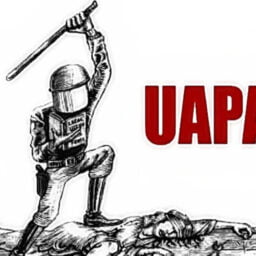INTRODUCTION
The right to information is widely recognized as a critical aspect of the fundamental freedom of expression. More importantly, access to information about government bodies and their operations enables informed decision-making and substantive public debate.[1] Transparency established by the open flow of information is also critical for public institutions to develop confidence. On this basis, the United Nations Special Rapporteur on Freedom of Expression reaffirmed that the right to access information held by public authorities is a fundamental human right[2] that should be implemented through comprehensive national legislation.[3]
ENACTMENT OF THE RIGHT TO INFORMATION ACT
Bangladesh’s Right to Information Act[4] was enacted to recognize the right to information as an inherent component of the constitutional right to freedom of thought, conscience, and expression.[5] While the RTI Act was lauded at its enactment as a significant step toward assuring public engagement and transparency, its performance has been questioned during the subsequent decade. Numerous studies have cited deficiencies in the legislative framework and extra-legal elements such as a culture of secrecy, fear, and red tape as explanations for the implementation’s poor progress.
RTI’S COMPLIANCE WITH INTERNATIONAL STANDARDS
The RTI Act’s provisions may be compared to the principles governing freedom of information legislation adopted in the UN Special Rapporteur on Freedom of Expression’s 2000 report[6] to determine its compliance with international standards. Firstly, full disclosure of the information is a fundamental value. This principle implies a presumption that all information kept by public bodies is subject to disclosure, which may be rebutted in restricted circumstances.
Additionally, it places the burden of explaining a denial of a request for information squarely on the shoulders of the appropriate authorities. Additionally, the principles stipulate that a refusal to reveal information must pass a three-part test; namely, the data must be for a legally permissible purpose, the revelation must cause substantial harm to that purpose, and the damage must outweigh the public interest in favour of disclosure.
CHALLENGES OF THE RIGHT TO INFORMATION ACT
Section 7 of the RTI Act offers a list of twenty exceptions to the mandatory disclosure requirement.[7] However, the section is qualified because prior clearance from the Information Commission is acquired before withholding information under this section.
According to World Bank studies, around 27% of material falling within this division was denied. As a result, the RTI framework’s conformity with the principle of full disclosure is problematic. Another critical element is that “disclosure takes precedence” which means that other sections of legislation must be construed in light of the disclosure obligation. Thus, the interaction between the RTI Act and other statutes, most notably the Official Secrets Act[8], the Digital Security Act[9], and others, is critical to determining its effective implementation.
Section 3 of the RTI Act provides that, in the event of any inconsistencies in other legislation, the RTI Act shall take precedence.[10] As a result, several existing rules that safeguard state secrets will be repealed or enforced narrowly to defend the right to knowledge.
INTERACTION BETWEEN THE RTI ACT AND OTHER STATUTES
Under section 6(2) of the Official Secrets Act, anyone who permits another person to obtain official records provided for his exclusive use for any purpose jeopardizes the state’s security commits an offence.[11] On the other hand, section 123 of the Evidence Act prohibits presenting “unpublished official records” as evidence without the department head’s authorization.[12]
In the event of a contradiction between these two statutes, the RTI Act shall take precedence. It is a beneficial component of the law; however, the subsequent reference in the Digital Security Act to the Official Secrets Act has been criticized for compromising the spirit of the RTI Act.
Anyone who commits or assists and abets the commission of an offence by digital means faces up to 14 years imprisonment or a fine up to BDT 25 lakh under the Official Secrets Act.[13] While the significance of such antiquated colonial legislation is debatable in and of itself, the Digital Security Act legitimizes the existing culture of secrecy by reviving the Official Secrets Act. Furthermore, section 3 of the Digital Security Act provides that, save in the circumstances involving the right to information, the Act replaces conflicting provisions in other statutes (in which case, the RTI Act shall prevail).[14] Several other aspects of the Digital Security Act, on the other hand, jeopardize the RTI Act’s proper implementation.
LIMITATIONS OF THE RTI ACT’S APPLICATION
The parts describing offences such as posting “offensive, misleading, or fear-inducing information” obtaining or exploiting identification information without permission, and rules on defamation and blasphemy are exceedingly broad and unclear. Additionally, section 43 empowers law enforcement to arrest someone without a warrant if they have reason to think that an offence has been committed or is about to be executed.[15] Not only are these restrictions prone to abuse, but they also have a chilling effect on free speech and effectively limit the RTI Act’s application.
Additionally, section 31 of the RTI Act protects actions performed by the authority in “good faith”.[16] The term “good faith” refers to actions taken with reasonable care and attention. Due care and attention are only quantifiable in terms of the authority’s subjective satisfaction. Subjective compliance with the rules based on the good faith clause may result in abusive and discriminatory practices. Therefore, incorporating a good faith clause into legislation designed with the express intention of holding public officials accountable is intrinsically contradictory.
PRACTICAL OBSTACLES IN ENSURING RIGHT TO INFORMATION
Apart from the RTI Act’s flaws, there are other practical difficulties associated with its execution, such as the role of the Information Commissions (IC) and Chief Information Commissions (CIC). Historically, many of the IC and CIC have been retired public workers who are averse to relinquishing their current positions in sustaining the culture of secrecy.
As a result, they have not built an atmosphere favourable to citizens under the RTI system. In addition, the somewhat complicated information-request procedure and unnecessary bureaucracy also significantly reduce the efforts of concerned applicants under the Act. The RTI Survey 2019 revealed that concerned authorities are unwilling to penalize the Designated Officer(s). According to the report, no action was taken in 48% of incidents of RTI Act non-compliance.[17]
CONCLUSION
In a nutshell, the RTI Act presents both obstacles and opportunities for establishing transparency and accountability within public agencies. Firstly, the legislative structure must be amended to conform to international standards. Secondly, addressing extra-legal causes requires dedicated efforts from all walks of life. Civil society organizations, the media, and the judiciary can all play a vital role in this effort by publicizing the RTI Act and preserving the ethos of open government.
Author(s) Name: Md. Shawkat Alam Faisal (University of Rajshahi, Bangladesh)
References:
[1] McDougal, M. S., Lasswell, H. D. and Chen, L. C., Human Rights and World Public Order (New Haven, CT: Yale University Press, 1980)
[2] ‘International Standards: Right to Information’ (ARTICLE 19) <https://www.article19.org/resources/international-standards-right-information> accessed 8 October 2021
[3] ‘Special Rapporteur on the Promotion and Protection of the Right to Freedom of Opinion and Expression Archives’ (The United Nations) <https://www.un.org/unispal/document-source/special-rapporteur-on-the-promotion-and-protection-of-the-right-to-freedom-of-opinion-and-expression> accessed 8 October 2021
[4] Right to Information Act 2009
[5] Hereafter referred as ‘the RTI Act’
[6] Toby Mendel, ‘The UN Special Rapporteur on Freedom of Opinion and Expression: Progressive Development of International Standards Relating to Freedom of Expression’ <https://www.cambridge.org/core/books/united-nations-and-freedom-of-expression-and-information/un-special-rapporteur-on-freedom-of-opinion-and-expression-progressive-development-of-international-standards-relating-to-freedom-of-expression/29E14CC994BA76CD6F2F098AAC54B772> accessed 8 October 2021
[7] Right to Information Act 2009, s 7
[8] Official Secrets Act 1923
[9] Digital Security Act 2018
[10] Right to Information Act 2009, s 3
[11] Official Secrets Act 1923, s 6(2)
[12] Evidence Act 1872, s 123
[13] Digital Security Act 2018, s 32
[14] Ibid, s 3
[15] Right to Information Act 2009, s 43
[16] Ibid, s 31
[17] The Right to Information Survey 2019.
















